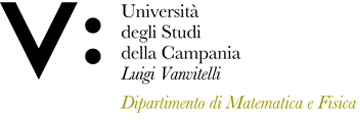Gerardo TORALDO
Insegnamento di ADVANCED OPERATIONAL RESEARCH
Corso di laurea magistrale in DATA SCIENCE
SSD: MAT/09
CFU: 6,00
ORE PER UNITÀ DIDATTICA: 48,00
Periodo di Erogazione: Primo Semestre
Italiano
| Lingua di insegnamento | Inglese |
| Contenuti | Il corso tratta i seguenti argomenti: |
| Testi di riferimento | [1] Introduction to Linear Optimization, D. Bertsimas, J.N. Tsitsiklis, Athena Scientific. |
| Obiettivi formativi | Conoscenze: gli studenti devono acquisire conoscenze su metodi ed algoritmi per l’ottimizzazione lineare e non lineare. |
| Prerequisiti | Si raccomanda la conoscenza di algebra lineare numerica e dei contenuti del corso di Analisi. |
| Metodologie didattiche | Il corso prevede lezioni frontali e sessioni di laboratorio (48 ore, 6 CFU). |
| Metodi di valutazione | L’esame è costituito da una prova orale allo scopo di verificare il livello di raggiungimento degli obiettivi formativi precedentemente indicati. |
| Altre informazioni | Le attività di laboratorio sono parte integrante del programma e verranno realizzate in Matlab. |
| Programma del corso | Richiami di programmazione lineare: il metodo del simplesso, teoria della dualità. |
English
| Teaching language | English |
| Contents | The course covers: |
| Textbook and course materials | [1] Introduction to Linear Optimization, D. Bertsimas, J.N. Tsitsiklis, Athena Scientific. |
| Course objectives | Knowledge and understanding: students are expected to acquire knowledge on methods and algorithms for linear and nonlinear optimization. |
| Prerequisites | Basics of numerical linear algebra and analysis. |
| Teaching methods | The course consists of lectures and laboratory sessions lectures (48 hours, 6 CFU - ECTS credits). |
| Evaluation methods | Students are evaluated through an oral assessment, aimed at verifying if they matched the objectives of the course. |
| Other information | The laboratory activities are an integral part of the program and will be carried out in Matlab. |
| Course Syllabus | Recalls on linear programming: the simplex algorithm; duality theory. |








